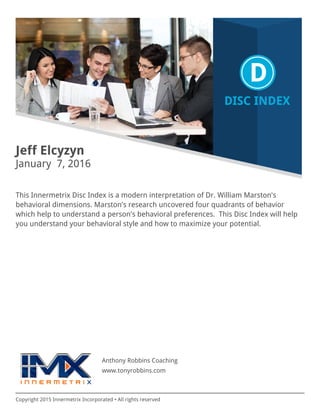This document provides information about Jeff Elcyzyn's DISC behavioral assessment results. It discusses how the assessment is based on Dr. William Marston's research on four behavioral dimensions. The summary then describes Jeff's natural and adaptive behavioral styles according to the assessment, noting his relatively low scores in the Decisive and Interactive dimensions.





















